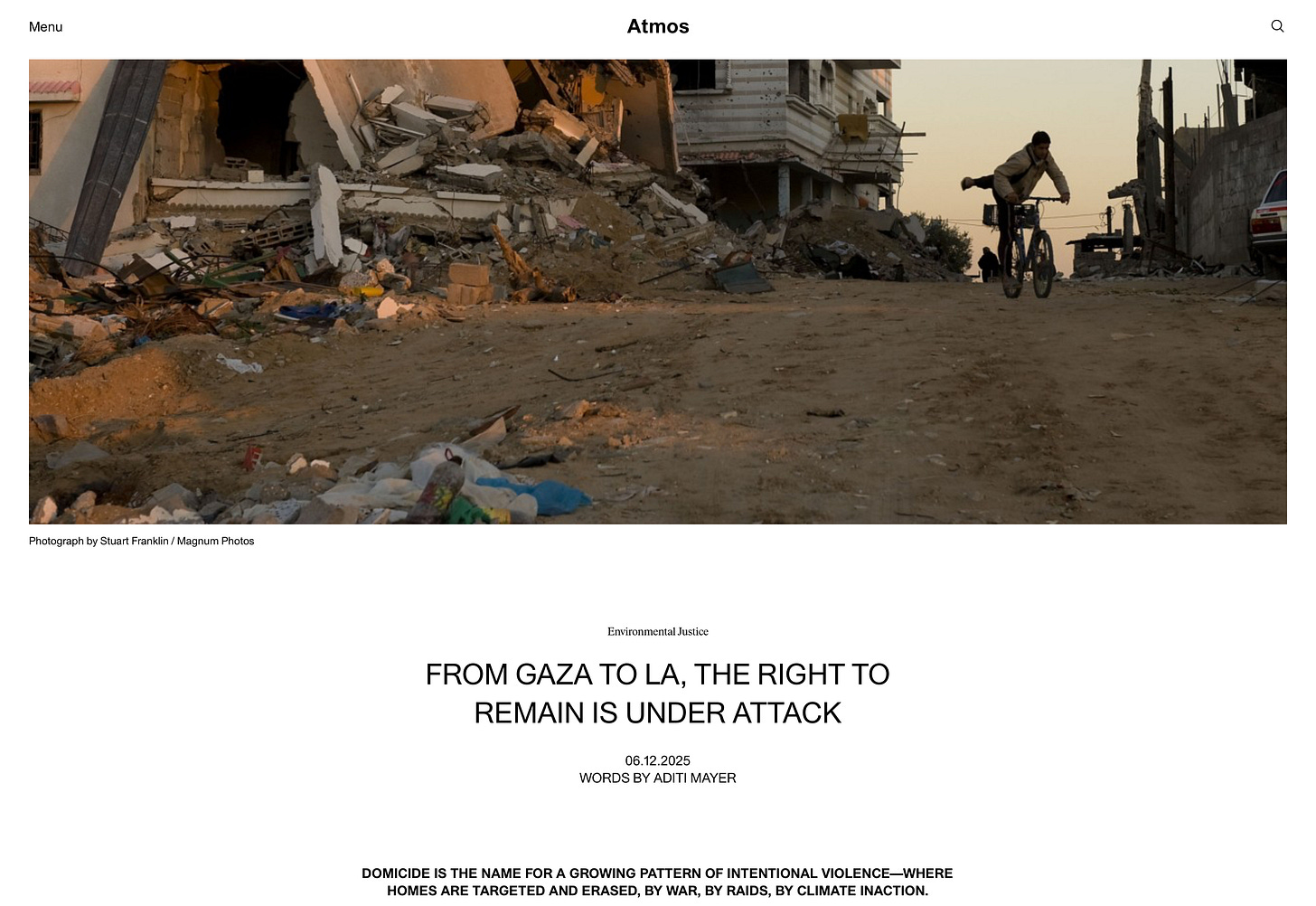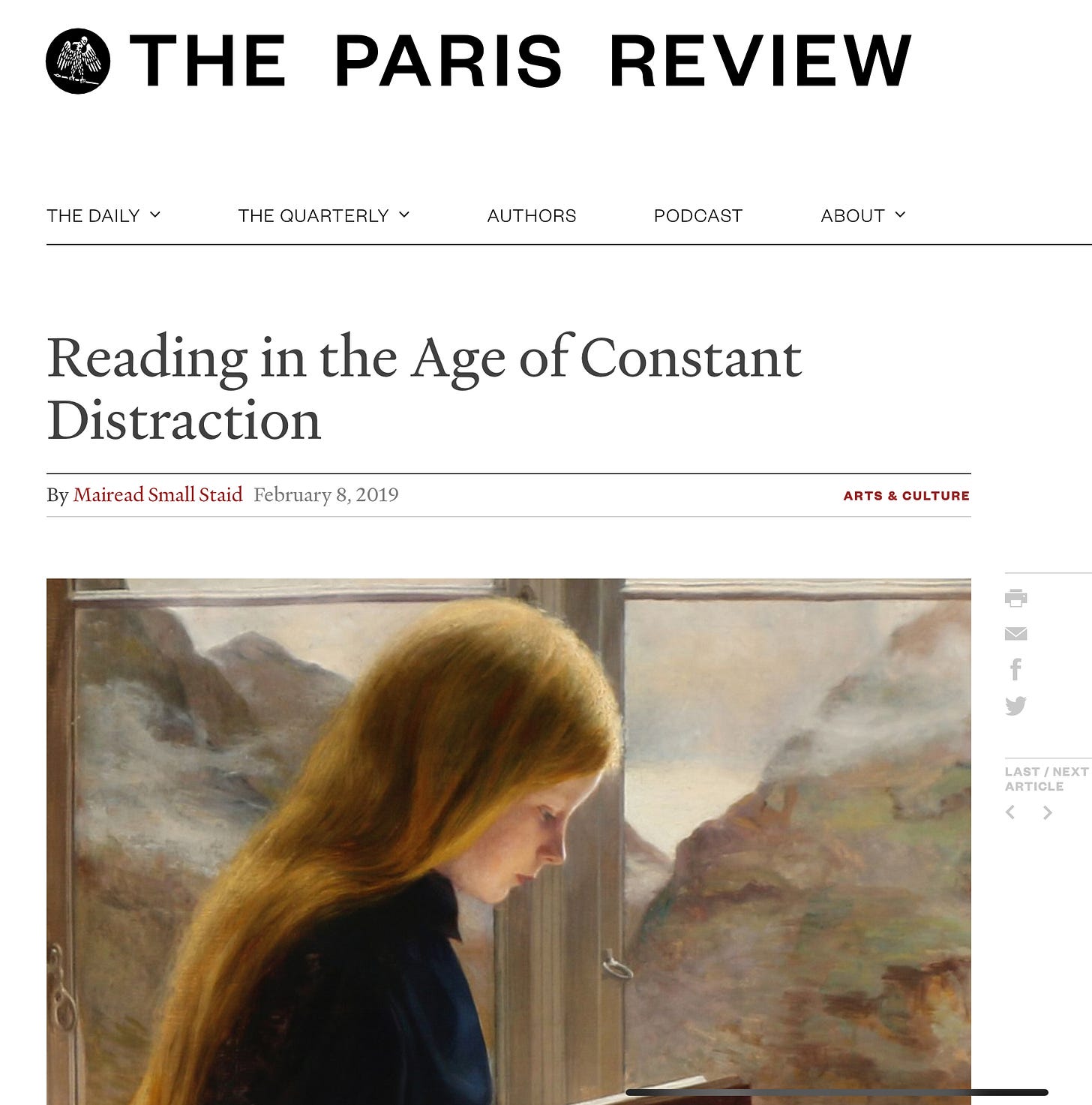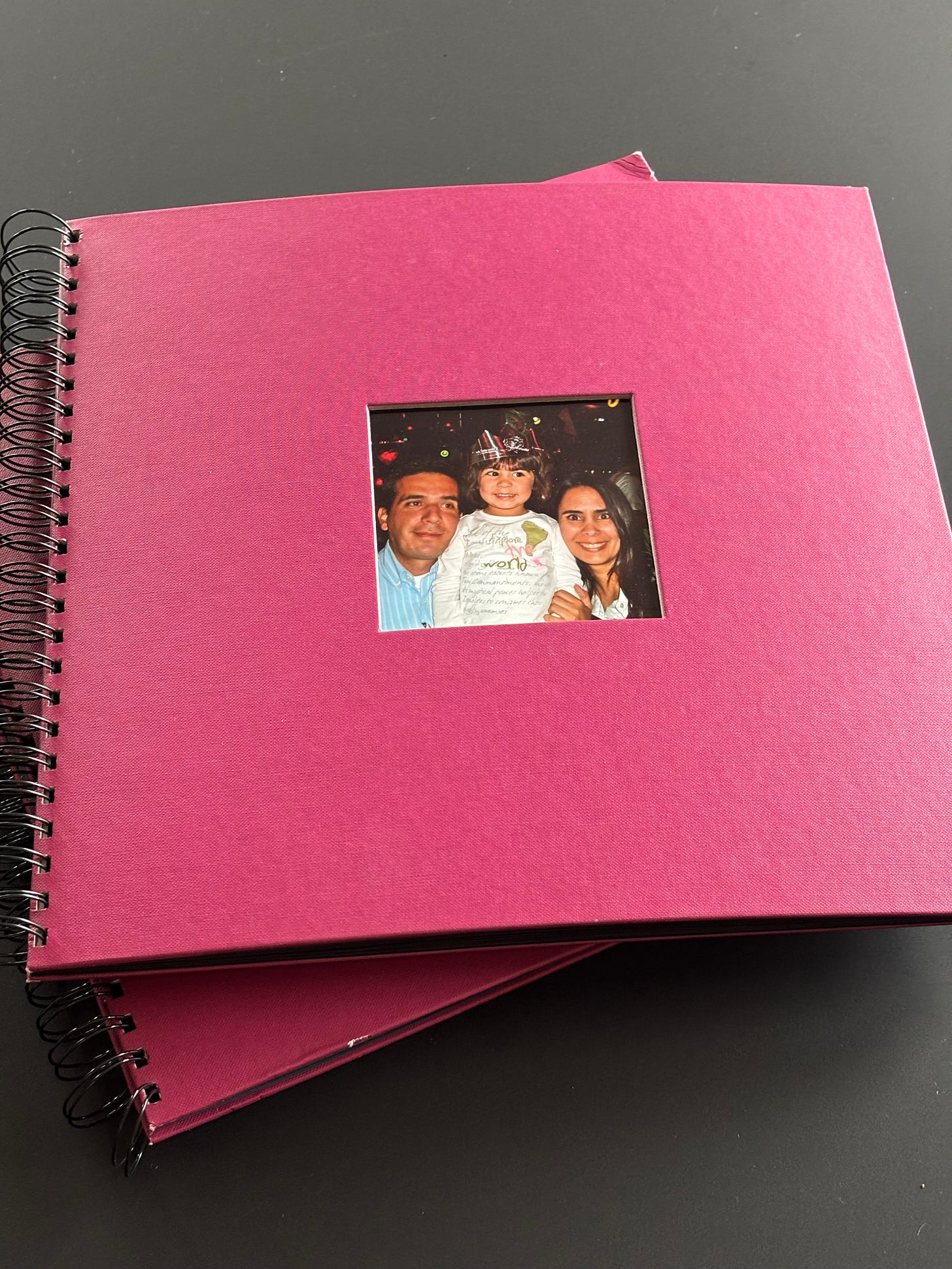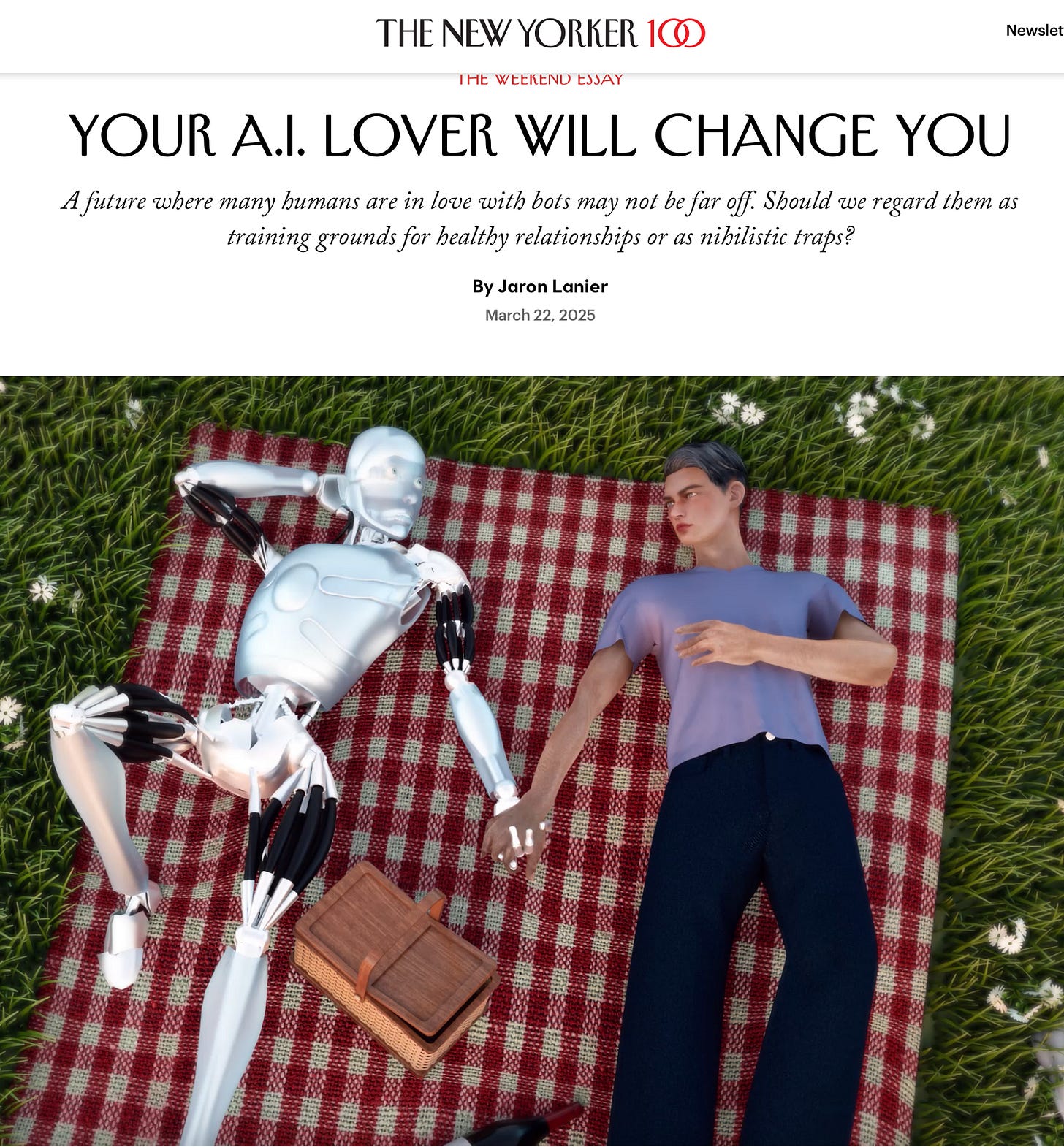15.06.25 media roundup
Notes on geographic luck, the flaws of the fashion industry, the importance of reading, social media, A.I. relationships, and more.
Welcome to this week’s installment of media I consumed instead of doomscrolling! I am incredibly pleased to say that I am finally done with my third year of university (and my dreadful final project), which means I am officially on my Summer break. For some reason this break is almost four months long, which don’t get me wrong, I am really looking forward to, but that means I must figure out how to spend my time. Obviously I am going to be focusing a lot on creating content for you guys here and on my TikTok, so keep an eye out for that, but I also think this is a great opportunity to really focus on taking care of myself and my habits. Hope you enjoy <3
From Gaza to LA, the Right to Remain is Under Attack
Essay examining the term “domicide” as the targeted displacement and destruction of home through the connection between the situations in Gaza and LA, as a direct result from the violence that comes with war and climate inaction.
Seeing the horrors of the world unfold lately has got me thinking a lot about the fact that the majority of our lives and the safety that we feel are determined by geographic luck. Of course, countless variables build our realities and our quality of life but the baseline for these will always be the place where we happen to have been born into. How is it fair to judge and prosecute people for seeking a safe home that the privileged have always considered a given? How is it fair to ethnically cleanse and forcibly displace an entire population because of entitlement to their home? How is it fair that the people in power destroy the planet that we get to call home?
As someone from a so-called “third world country” that stands in the privileged position of having had the chance to leave it, I think it’s crucial to have a conversation about double standards and the underlying colonialist roots behind immigration and forced displacement. I study in Italy and plan on staying in Europe to build my life. I am lucky enough to have Eurocentric features, an ambiguous American accent, and an excellent education, meaning I get to distance myself from my roots in a way that makes me being an immigrant and a minority more digestible than many who are not as lucky as I have been.
This opens up a larger discussion though, we need to talk about the actions, historically and currently, of the people in power. From holding colonialist nations accountable for the violence, exploitation, and instability that they have caused globally, to holding large corporations and destruction-driven governments accountable for the irreversible damage that they are causing to the environment. I could go on forever talking about this so I’ll leave it at that but this essay does a brilliant job at explaining how all of these issues are interconnected and how we cannot discuss one without the others.
Video essay breaking down the history of standardized sizing in clothing and how it is fundamentally flawed as it is rooted in the “thin ideal”, resulting in unrealistic beauty standards and a failure provide truly inclusive sizing.
This idea that clothes are meant to fit us instead of us fitting into them sounds great in theory but the amount of physical and mental barriers that stand in between, especially for people with larger bodies, makes the conversation a bit reductive. That’s why I think this video is so well done, it traces a large part of why this has happened historically and how it connects to today’s beauty standards, and overall the systemic issues that are upheld by the fashion industry.
As someone who studies fashion business, I truly believe that there is so much potential for growth if big companies begin tapping into authentic and non-performative size inclusivity. However, I don’t think we can rely on fast fashion brands for this. Even though they are the ones with the largest reach and accessibility, these companies will always prioritize safe profit over the customer's needs, especially when the context gives itself for them to get away with placing the blame on the consumer.
Consumption habits must change along with the supply chain and marketing of industry at large to see any significant change, because as much as trying to internalize a body-neutral stance toward ourselves might help, many don’t have the privilege to feel comfortable in their clothes just because of a change of mindset.
Substack post critiquing the current fashion overconsumption landscape where the consolidation of identity through clothing is lost as the rapid trend cycle takes over and results in accumulation instead of curation.
’ve said it before and I’ll say it again, the more you understand the fashion industry the less you take part in it. This isn’t to say that you don’t partake in fashion at all, quite the opposite actually, you become so painfully aware of the flaws of the industry that you reclaim fashion as a means for individuality and rebellion. I think this is why so many people who are passionate about fashion embrace the anti-fashion look.
Going back to what I was saying under the previous video essay, the industry won’t change unless consumer purchasing habits do. Speaking from a personal perspective, even though I’m not at the anti-fashion end of the spectrum just yet, I have noticed the way that I consume clothing has drastically changed ever since I began my fashion business course. I am now able to observe the fashion landscape as an almost social experiment, one through which I can see the greater societal issues that are reflected in it as these rapidly moving trend cycles gain traction. The post really unpacks a lot more about this but I just wanted to add a couple of things that I find relevant when having this conversation.
Reading in the Age of Constant Distraction
Essay arguing that the fulfillment, depth, and resonance that is felt through reading is essential at a time where the digital landscape is numbing us from the capacity to connect to others and to the present.
Before I really got into reading, I existed in a vacuum, severed from the world, the people around me, and essentially myself. For some reason, my inner world has been full of turmoil my entire life, the loudness of my head has always seemed to muffle out everything and everyone around me, leaving me in a state of constant disconnection and for a period of time, of depersonalization.
It’s safe to say that one of the variables that were a factor at the time was the way I existed within the digital world. I wasn’t necessarily at that mental spot because of social media, however, it was definitely a coping mechanism that sent me into this downward spiral of a vicious cycle where it just made everything worse. When I began reading, even though it was nearly impossible for me at the beginning, I found that my head slowly but surely began to quiet down.
Books became a way in which I got to connect with myself, not only through finding common ground between myself and the characters in the books, but by developing my own perspective and stances on things that are entirely outside of my context. Books became the gateway for me to step outside of myself and be able to zoom in and out to experience different perspectives. It’s a scary and uncomfortable feeling to face the intensity of life in this way, some times it feels easier to just chuck a screen in front of us to try to forget it, but I think that the vastness of enlightenment makes it all worth it.
Podcast analyzing how there has been a shift from documenting to posting with the rise of social media, how this has resulted in a loss of passion, authenticity, and creativity, and ways to get them back.
As you can probably tell by now, I have a bit of a tumultuous relationship with social media, and I know many of you do as well. The idea of posting things on social media as a means of documentation is clearly just an excuse to curate our online personas, because if documentation were truly the goal, we wouldn’t necessarily feel the need to put up a show for the world to see. Sigh Swoon breaks this down beautifully and her words inspired me to rethink the processes that I have created for documenting my life.
I am currently staying in Switzerland for a few days at a family friend’s house, they brought out these beautiful albums, full of pictures from their trip to Colombia in 2006, where they came to visit us in Bogotá. They had so many pictures of me and my family, seeing them felt like stepping into a time capsule where I could almost feel the air from our old apartment and see the world looking up again. The intention and spontaneity with which these images were taken really struck me, I think we need to start keeping physical photo albums again.
Your A.I. Lover Will Change You
Essay examining the implications of the rise of romantic and emotional “relationships” with A.I., particularly regarding the upcoming generations’ ability to foster connections, as humanized models of A.I have become the standard.
The last few weeks of university were particularly brutal so one day I decided to take a break from the book that I had to make for my final project and decided to watch a movie night. The movie that I happened to pick was Her, which in case you didn’t know (like I didn’t), is about this guy that develops a relationship with this A.I. operating system as he’s trying to get over his divorce. I didn’t understand what I was getting myself into but it’s safe to say that I did not find any relaxation or rest after watching it, in fact, I was left with a pit in my stomach as I realized that what this twelve year old movie was showing as a strange dystopian future was basically our current reality.
Interestingly enough, the essay actually brings up the movie and has really great insights into it as a sort of archetype for this phenomenon. I think my greatest concern about the rise of these “relationships”, if we can even call them that, is that the humanization of these technologies is isolating us even further than we already are from each other, particularly for mine, the younger and future generations. Even if we’re not discussing that extreme, the rise of A.I. therapy is so disturbing, it truly highlights how critiquing people for using ChatGPT is not the way to go, and how there are fundamental societal flaws that must be pointed out instead.
Substack post arguing that women must prioritize themselves, regardless of how it might be perceived in the eyes of a patriarchal society, as a direct counter-action to their internalized need to people please.
De-centering men has been a truly revolutionary thing for me, and I think one of the main things that deters women from doing so is the friction that is inevitably caused between them, and everything that they have been taught to be their entire lives. We as women have been socialized to prioritize everyone before ourselves, to feel as though the world would end if we were to be disliked.
This post is worded so perfectly and thoughtfully, I don’t have much to add to it. I just think that we need to kill the man that lives inside our heads to be able to truly connect with our dreams and aspirations, not only regarding the way in which we want to position ourselves in society, but in the way in which we explore our identities. For once we need to pick ourselves instead of wanting to be picked.











Love Remedios Varo🙌🏻.I had the opportunity to see it in Museo Nacional de Bellas Artes México City.